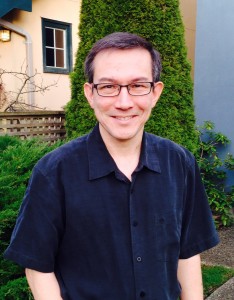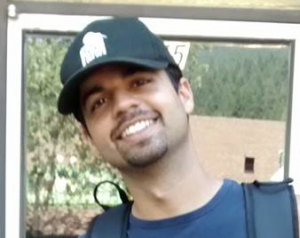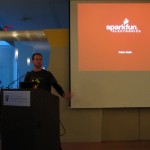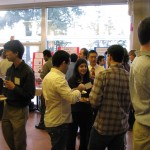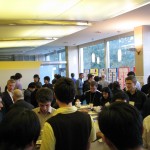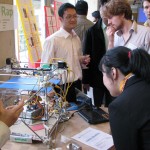Overview
|
Theme |
Looking Down from Above – The business and technology of Satellites and Imaging |
|
Date |
Thurs March 5th 2015 |
|
Time |
5pm – 9pm |
|
Registration |
|
|
Location |
Irving Barber Learning Centre, Victora Theater. 1961 East Mall (click here for parking and directions) |
|
Overview |
The Engineering Physics Project Fair is a poster session of recent projects by our senior Engineering Physics students, presentations by award-winning student groups, as well as a selection of invited speakers focused on each year’s selected theme. |
|
Invited Speaker
|
Alan Thompson, MDA. Chief Systems Engineer, RADARSAT Constellation Mission. Alan Thompson is the Chief Systems Engineer on the RADARSAT Constellation Mission (RCM), at MDA. RCM is a constellation of three Synthetic Aperture Radar (SAR) satellites being developed by MDA for the Canadian Space Agency. Alan has worked on RCM since its very beginning as a study in 2003 until the present, where the program is in the manufacturing stage. Alan joined MDA in 1999 to work on RADARSAT-2 as a senior systems engineer. Prior to working at MDA, Alan worked on SAR processing at Array Systems in Toronto. Alan has a Ph.D. in mathematics from MIT (in the field of integral geometry). While his degree was in pure mathematics, the radar imaging systems he currently works on are applications of the types of mathematics he used to study and develop.
|
|
Invited Speaker |
Parwant Ghuman, Chief Technology Officer 3vGeomatics. Parwant joined 3v Geomatics (3vG) in 2010 after six years as a researcher at MDA R&D. At 3vG, Parwant focuses on developing image processing technology for measuring millimetre-level movement of the earth from spaceborne radar sensors. He is the Chief Technology Officer who oversees the implementation and deployment of the algorithms, techniques, and processes that are collaboratively developed within the company. The 3vG team processes radar imagery collected throughout the world, and tackles interesting problems on multiple levels: algorithm development and generality, software acceleration, and system scalability. We have developed our own hardware cluster comprising compute and storage nodes for processing radar “big data”, and invest significantly in R&D to improve our products.
|
Registration
| _______ | Insert Registration Here |
Preliminary Schedule
|
5:00 – 6:30 |
Student Posters and Dinner |
|
6:30 – 6:45 |
Intro, Student Project Awards (Nodwell, Auld and Roenitz Prizes) |
|
6:45 – 7:45 |
First Speaker |
|
7:45 – 8:00 |
Break |
|
8:00 – 8:45 |
Second Speaker |
|
9pm |
Cleanup |
About the Project Fair
The Engineering Physics Project Fair provides a forum for the interchange of ideas and for the reinforcement of technological networks between students and faculty at UBC, local industry, and government support agencies. The Project Fair brings together participants to review current developments as presented by our invited speakers, as well as being a showcase for the 120 senior Engineering Physics students and the projects undertaken in the Project Laboratory during the past year in an interactive poster session and award-winning student presentations.
Please consider attending and meeting our senior class – this is an opportunity to meet our students in person and to review their project work firsthand.
